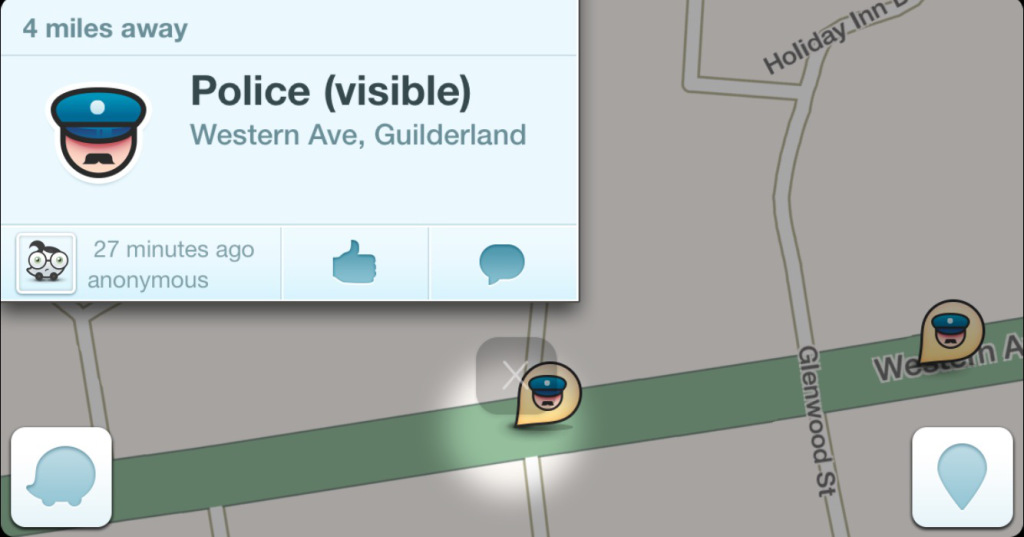Waze Accused Of Stealing Map Data From Competing Traffic App
 How do you catch someone who you think is stealing your map data? Just put locations on the map that don’t exist, and then look for those locations to show up on the alleged thief’s maps. That’s what traffic-alerting app PhantomAlert did when it believed that competitor Waze was stealing its location database. Now PhantomAlert is suing Waze, which has since been purchased by Google.
How do you catch someone who you think is stealing your map data? Just put locations on the map that don’t exist, and then look for those locations to show up on the alleged thief’s maps. That’s what traffic-alerting app PhantomAlert did when it believed that competitor Waze was stealing its location database. Now PhantomAlert is suing Waze, which has since been purchased by Google.
PhantomAlert alleges that Waze approached the company in 2010 to propose an arrangement where the two companies would share data about points of interest (businesses, landmarks) as well as traffic and map data. They declined the arrangement, and thought both companies would just go on their way.
PhantomAlert alleges that Waze then began copying information from their maps, including fake items that they deliberately placed in the Points of Interest database. “Waze stole PhantomALERT’s database when Waze could not get it legally, and then sold itself to Google for over $1 billion,” the company’s attorney said in a statement.
PhantomAlert works with standalone GPS devices as well as mobile devices, and charges a subscription fee. Waze is free to use, supporting itself with location-based ads served up on the road. PhantomAlert also alleges that Waze’s parent company, Google, uses data that originated with PhantomAlert in its own maps and other services.
RELATED:
Smartphone Traffic Apps: Are You Gambling With Your Commute?
Want more consumer news? Visit our parent organization, Consumer Reports, for the latest on scams, recalls, and other consumer issues.

